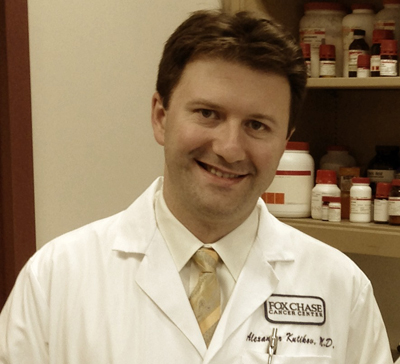Urologist as the Go-to Adrenal Surgeon?
What do Galen, da Vinci, and Vesalius have in common? All three, in all their detailed description of human anatomy, failed to note the existence of the adrenal glands. In fact, it was Bartholomeus Eustachius (yes, the one of the “tube”) who in 1563 was the first to document the glands’ existence. Meanwhile, it took another three centuries for Thomas Addison to recognize the physiologic importance of the adrenals. Soon thereafter, Charles Brown-Sequard, who appears to have toyed not only with spinal cords, removed both adrenals from a dog, thus proving that the glands were critical to life.
Notwithstanding the adrenals being a source of major human ailments, the glands and their pathology to this day often remain unnoticed. For instance, a study in the Harvard Vanguard healthcare system revealed that >80% of adrenal lesions do not receive adequate evaluation. Meanwhile, nearly 20% of adrenal incidentalomas potentially represent surgical lesions. Indeed, perhaps due to their understated anatomic prominence or more likely due to the embryologic origins that are distinct from the urinary or gastrointestinal tracts, the adrenal glands largely remain “orphans” in the surgical arena. Yes urologists, surgical oncologists, and more recently subspecialists known as endocrine surgeons manage and operate on the adrenal glands; nevertheless, referral patterns and expertise vary, and, arguably, no surgical specialty has consistently “parented” these organs.
In this lies a great opportunity. Today’s urologists are ideally positioned to take the reigns on the surgical management of the adrenals. With the urologist’s advanced minimally invasive surgical skills, comfort with both retroperitoneal anatomy and surgical approaches to retroperitoneal organs, it is only natural that the evaluation and surgical management of adrenal disorders evolve and remain in the domain of urologic surgeons.
Nevertheless, a technical skillset in removing an adrenal should not be mistaken for adequate expertise in management of its pathology. In order for urologists to position ourselves as surgical leaders in the adrenal space, fluent knowledge of adrenal pathophysiology and appropriate evaluation is paramount. Nevertheless, “know-how” of adrenal management is infrequently mastered during urologic training. In my experience, many trainees and practicing urologists are somewhat overwhelmed by the complexity of adrenal pathophysiology and are often unsure how to distill the large volume of information they’ve learned for standardized examinations into practical knowledge. For instance, expertise on how to appropriately evaluate a referral for a newly diagnosed adrenal lesion is often lacking. Such lack of expertise potentially leads to overtreatment of some patients and undertreatment of others.
As the field moves forward, we must better educate our trainees and practicing urologists on the practical nuances of surgical management of the adrenals. The AUA Core Curriculum effort is a great start. However, a brief course at the AUA and/or EUA for practicing urologists is urgently needed.
As such, the close anatomic and physiologic relationship of the adrenals to the kidney positions urologists as the most appropriate surgical specialists for treatment of surgical adrenal disorders. However, leadership in the surgical adrenal space must be founded not only on technical skills, but also on clinical fluency in appropriately evaluating, selecting, and medically managing patients with adrenal neoplasms and disease. Tremendous opportunities on bridging the knowledge gap in management of surgical adrenal disorders exist and, potentially, can be solved by formal courses at national meetings.
Dr Alexander Kutikov, MD is an Associate Professor of Urologic Oncology at Fox Chase Cancer Center, Philadelphia, USA. @uretericbud
Comments on this blog are now closed.



Urologists may feel like our busy and varied schedules make the medical management of adrenal diseases too onerous to undertake (think pre-op alpha-blockade titration), but we are likely underestimating ourselves, especially with collaboration with our anaesthesia and endocrinology (who may drool over managing secreting tumours over the humdrum of blood sugars and TSHs) colleagues.
Perhaps as well our upcoming forays into medical adrenal management (as we begin to “hold on” to our castration-resistant prostate cancer patients with androgen synthesis inhibitors and prednisone Rx-ing before medical oncology referral) will ease us into a more comfortable place wrt adrenal physiology?
Maybe they should be called the eustachian glands then … that would be confuse things. It makes so much sense for urologists to do this surgery as they are used to operating in the retroperitoneum rather than endocrinologists who aren’t. Presumably it is a historical division which has continued to exist due to referral patterns from endocrinologists. Time to change ?
Mike, Matt, Agree. A busy kidney surgeon is in the upper retroperitoneum multiple times a week – it’s a no-brainer that he/she is best equipped to perform partial / total adrenalectomy. The _practical_ knowledge of adrenal management needs to be taught better in residency. In the latest Campbells Chapter we dedicated a section to “EVALUATION OF ADRENAL LESIONS IN UROLOGIC PRACTICE,” which distills down the practical aspects of adrenal lesion management:
Personally think that a course at AUA / EUA would be very useful, so that we can get practicing urologists up to speed.
Alexander
great piece. There is a conflict in many hospitals on who is best placed to do adrenal surgery. Having done a number lap and robotically I am convinced that robotically is a very nice approach and may be safer. Surely as Matt says surgeons who do upper tract procedures every day (ie upper tract specialist urologists) are best placed rather than endocrine surgeons who look on it as a nice break from the thyroids! We just need the medical endocrinological links and backup to make it work well.
Good point Alexander!
I agree with you, Ben & Matt that adrenal surgery should be a Urologist’s domain! However, like every other sub-specialty in Urology, focused education and training is essential to practice adrenal surgery. This will be best accomplished by Urologists who routinely perform major open / laparoscopic / robotic retro peritoneal surgery including Nephrectomy. To provide focussed training to all Urologists & Urology trainees in adrenal surgery may not always improve their working knowledge and clinical skills at a sub-specialist level, to apply on a day to day basis if they are not routinely involved in the practice of adrenal surgery.
This is especially true in a set up like the NHS in UK, where majority of Urologists / trainees outside a regional cancer center don’t get the necessary experience in major open / laparoscopic / robotic Urologic surgery. Their existing basic knowledge on the Patho-Physiology of adrenal disease acquired as part of undergraduate and postgraduate training is usually sufficient to be aware of adrenal pathology and the need to refer to the appropriate sub-specialist at the right time. It may be wise to focus training in adrenal surgery on the select group of Urologists who are well trained or in training in the field of Surgical Uro-Oncology incorporating major open / laparoscopic / robotic surgery. Nevertheless courses in the AUA / EUA would help improve the general awareness of adrenal pathology among different groups of Urologists / trainees to identify experts in this field and make the appropriate referrals at the correct time!
By asking the recent poll question on a urology website, I guess it is no surprise that the results showed that 80% believe that urologists should operate on the adrenals. Presumably a similar poll of general surgeons would show something rather different. However clearly there is overwhelming support from the urological community for this and it will be interesting to see how this develops over the next few years. I should suggest that general surgeons are unlikely to give it up voluntarily and so urologists are going to have to be proactive in changing local referral practices.
Urologists performing adrenal surgery need to audit and publish their results locally and nationally to make the case. Just desire to do it is not enough.
Agree. Yet, would argue that over the last decade urologists have had a major role in shaping the adrenal literature:
https://www.ncbi.nlm.nih.gov/pubmed/20546805
https://www.ncbi.nlm.nih.gov/pubmed/21507561
https://www.ncbi.nlm.nih.gov/pubmed/23164001
https://www.ncbi.nlm.nih.gov/pubmed/22704092
https://www.ncbi.nlm.nih.gov/pubmed/21788046
https://www.ncbi.nlm.nih.gov/pubmed/21122898
https://www.ncbi.nlm.nih.gov/pubmed/20726977
There can be no doubt that an upper tract minimally invasive Urologic surgeon would be technically best equipped to perform adrenal surgery and best prepeared, trained and capable of managing the immediate and post operative surgical complications which may arise and these can be very serious and even life threatening. If we can agree (and I think we can, can’t we) that multi-disciplinary team meetings to discuss complex cancer cases has inproved outcomes for cancer patients, then surely this must be the next target for short pre-operative meetings with a Consultant anaesthetist, an Endocrinologist and a surgeon to ensure correct preparation of these patients for surgery. If we agree with Samuel Johnson that knowledge is of two types, we know a subject ourselves or we know where to gain information about a subject, then using our colleagues to assist in the preparation of patients for surgery with complicated biochemical impact at times, would make the best sense and give the best chance of successful outcomes. Working in Silos is so 90s!
I am very happy to read your articles it’s very useful for me,
and I am completely satisfied with your website.
All comments and articles are very useful and very good.
Your blog is very attention-grabbing. I am loving all of the in.
turn you are sharing with each one!….
Urologist in indore
Its got that feel about it of a dispute in a British car factory in the mid 1970’s. “my lads do adrenals and we won’t be having any upstarts from the urological union crossing the picket lines and taking our lads organs out”
It’s bizarre that urologists don’t do more of this. In fact in our hospital, Guys in London, (Addisons Hospital by the way) we are doing more and more. Anatomical expertise and familiarity makes sense. that also means that sometimes on the right side when they are vast the HPB team can be a lot of help.
we need to engage with the endocrine teams and become their ‘go to’ surgeons
one note of caution. Addison went mad in the end and died with no friends.
Informative article, just what I needed.
Great write ups. Regards.